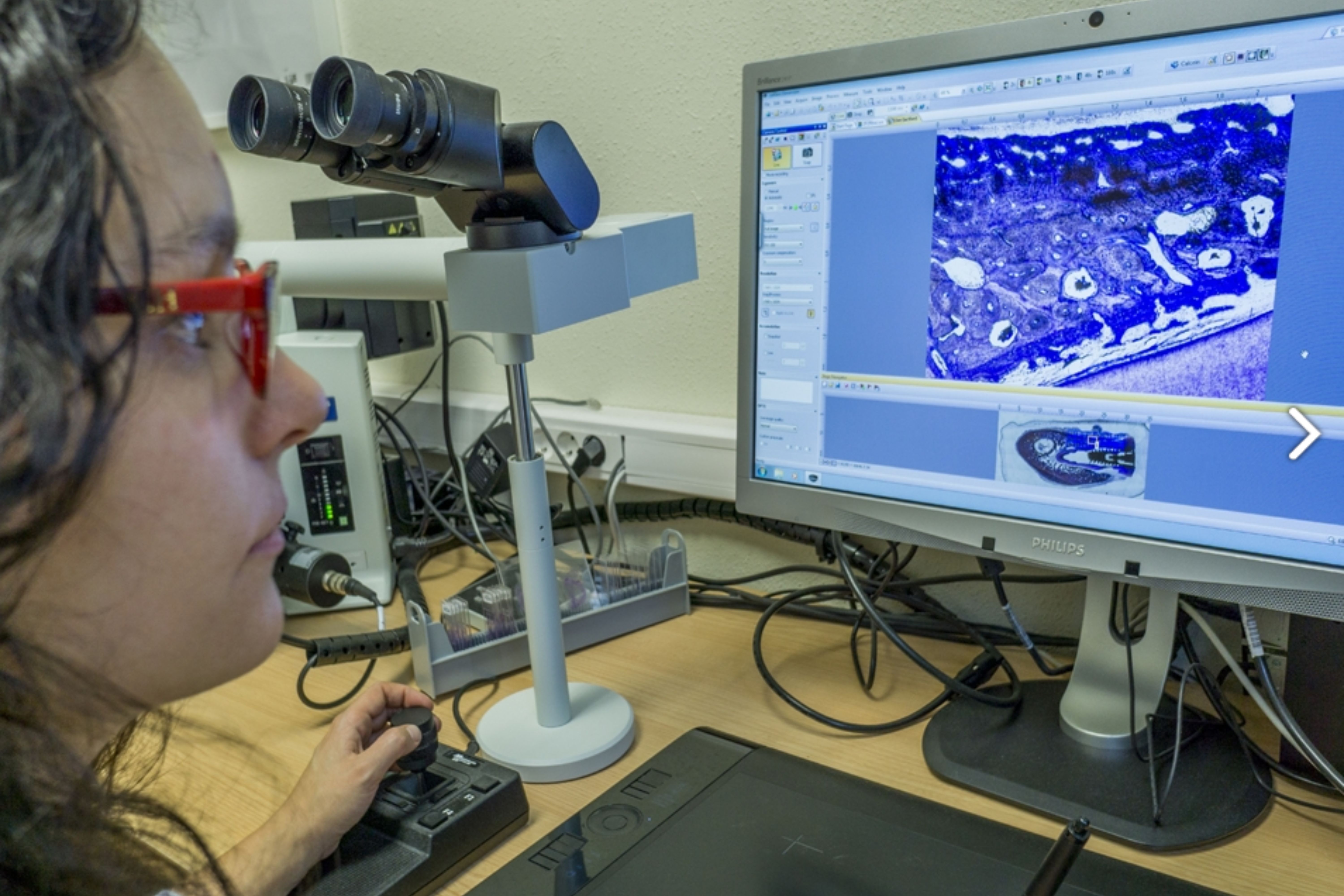
Latest information

The biotech company from Lugo specialising in implantable biomaterials
iBoneLab was born in November 2019 as a spin-off of the University of Santiago de Compostela thanks to the knowledge and experience of the Veterinary Experimental Surgery, Radiology and Ultrasound group of the Lugo Campus. Its mission is to offer R&D services to companies and public institutions, both national and international, in the fields of biomedicine and biomaterials. "We provide analyses of the response of living organisms to these biomaterials, using different techniques, such as histological 'thin-layer' analysis, histomorphometry or microtomography, among others," explains María Permuy Mendaña, a researcher and one of the people behind the initiative. "In general, companies, even very large ones, do not find it worthwhile to have a laboratory like ours within their facilities, as it entails a significant investment in equipment and specialised personnel, and it is more profitable for them to subcontract these services. That's where we come in," she continues.
"Thin-layer" is a histological technique that allows any material (whether biological or not) to be processed, regardless of how hard it is, so that it can then be observed under a microscope. In this way, it is possible to see the response from the tissues when the implant is placed and to assess which material is best in each case. "The advantage is that hard tissues of the organism, such as bones and teeth, and any material implanted in them, such as a titanium implant, can be processed using this technique and have their characteristics observed under a microscope, giving, for example, results in terms of their biocompatibility with the tissues".
Currently more than 90% of iBoneLab's turnover is international and they work with private companies and public institutions in Spain, Portugal, France, Switzerland, Norway, Belgium, Israel, Canada, the United States, Austria, Italy and Ireland, among others. Within the fields of biomedicine, they are focused on studying biomaterials for use in dentistry, traumatology and spinal surgery.
iBoneLab is also a successful case of knowledge being transferred from the university to the market. "We are fortunate to have had the support of several institutions, such as the University of Santiago itself, Lugo City Council, which has hosted us in its CEI-Nodus facilities, and the Galician Innovation Agency. The experience has been good, as the creation of the company has helped us to stabilise our research and technical staff, as well as the possibility of opening up to the market in an agile way," she says.
Recently, they have benefited from the Xunta de Galicia's call for applications to support technology companies' business plans, which have been positively evaluated in the state programme Neotec, of the Centre for the Development of Industrial Technology (CDTI), but which have not obtained financing due to insufficient credit. "Although we have optimised the technique to obtain quality histological preparations, the subsequent analysis requires many hours of work to be able to quantify the results. With the aid granted to us by the Galician Innovation Agency, we are developing histological image analysis software using artificial intelligence. The aim is to be able to analyse the digital images of the samples we process in the laboratory as automatically as possible. With support from researchers from the Citic at the University of A Coruña, we are "teaching" the programme to recognise the tissues that can be seen in the preparations, so that the analysis can be automated. We hope that this automation will allow us, in addition to saving time, to obtain more accurate results," she says.
A new iBoneLab headquarters is currently under construction in the As Gándaras business park in Lugo, which will allow them to expand their facilities and offer new technological solutions in their field. "For us, the most important thing is to try to have fun in our work and provide technical solutions for real business problems. As most of our clients come from abroad, we are especially excited to show our city to researchers from abroad, who are pleasantly surprised," she concludes.